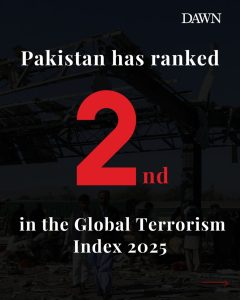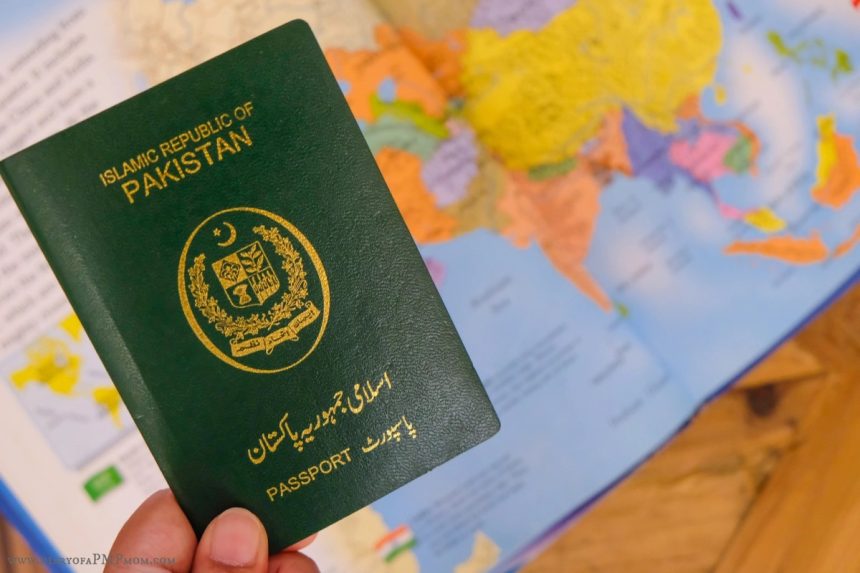The New York Times shared a leaked document from the Trump administration, placing Pakistan on the “Orange List” of travel-banned countries. Pakistan faces the threat of a blanket ban on student and tourist visas, except for highly influential business and diplomatic tours. Pakistani nationals shall face strict scrutiny of visas and difficult questions to earn entry into the USA, still with high chances of visa rejection. The policies of the new Trump administration threaten the world order based on inclusivity, human rights, and immigration. The U.S. government has also slapped bans on other countries like Iran, Russia, Belarus, Turkmenistan, and Cuba. Recently, Pakistan’s ambassador to Turkmenistan, K.K. Ahsan, was sent back by the U.S. Immigration Department, citing an “immigration objection” to his visa history. It is embarrassing and yet a wake-up call for a nuclear power to reevaluate its position in the global world order.
Background of Traveling Ban in Pakistan
Donald Trump is considered an anti-immigrant politician with strong opposition to immigration from Muslim countries, as seen in the U.S. travel ban on seven Muslim countries in 2016. Pakistan is placed 2nd in the Global Terrorism Index ranking, which makes it easier for other countries to include Pakistan in their travel bans. When asked about the recent travel ban, Donald Trump said he intended to protect American citizens from “aliens who intend to commit terrorist attacks, threaten our national security….” This is unfair to Pakistan, given its level of cooperation and strategic alignment with U.S. interests, which earned it the status of a “Non-NATO ally” in the South Asia region. Recently, Pakistan extradited Sharifullah to the USA, the mastermind behind the Abbey Gate Incident in 2021, which killed 13 U.S. Army personnel and 170 Afghan nationals. This development was seen as a positive gesture by Islamabad to improve deteriorating diplomatic relations with Washington, D.C.

Looming Threat of Ban by Middle Eastern and European Countries
Pakistan’s diplomatic relations are in dangerous waters with Middle Eastern countries, especially the UAE and Saudi Arabia, as the majority of the Pakistani labor force goes to these countries. Last year, more than 800,000 people applied for visas to Middle Eastern countries. The lack of skilled labor is forcing these countries to import workers from other nations like India, Bangladesh, and Sri Lanka. Additionally, the majority of Pakistani Muslims travel to Saudi Arabia for pilgrimage, but this is being overshadowed by the increasing number of begging cases within the premises of Makkah and Madina.
European countries are also growing hesitant about granting visas to Pakistani nationals in the current scenario. It has become increasingly difficult for deserving individuals, such as students and tourists, to acquire visas due to the widespread abuse of the immigration system by Pakistani immigrants.

Reasons for Traveling Ban
There are multiple reasons why Pakistan faces travel bans worldwide. Each factor has significantly contributed to declining visa acceptance rates. The following are some of the key reasons:
- Weak Passport
Pakistan’s passport is ranked among the weakest in the world, with a global ranking of 107th in the Global Passport Index. Pakistani passport holders have visa-free access to only 32 countries, making it highly restrictive.
- Fake Asylum Cases
Many individuals file fake and fabricated asylum cases in European countries to seek political refuge. They manipulate facts to present themselves as religiously persecuted minorities, damaging the credibility of genuine asylum seekers. This has led Western governments to adopt a more suspicious and restrictive approach toward granting visas to Pakistani nationals.
- Involvement in Criminal Activities
Unfortunately, Pakistani nationals are often involved in criminal activities that tarnish the country’s reputation. Crimes such as drug trafficking, human smuggling, and robberies have been detrimental to Pakistani communities abroad.
- Begging
Alarmingly, 90% of beggars arrested in the Middle East are of Pakistani origin, prompting authorities to take strict action against Pakistani nationals. This has become a source of national embarrassment and makes obtaining visas even more difficult for future travelers.
Suggestions for Improvement
Pakistan must work strenuously to improve its global image. This can only be achieved through political and economic stability. Stakeholders need to unite behind a common goal of “making Pakistan better.”
The state must focus on providing modern education to stay competitive among developing countries. The economy, which has long remained in critical condition, needs urgent reforms to ensure sustainable growth. Institutions like PIA need to be revamped to restore Pakistan’s global reputation—just like the good old days of “Great People to Fly With.”
Additionally, Pakistan’s passport must be strengthened through effective and strategic policies to enhance its global standing. There is also a dire need for positive media campaigns to instill civic awareness and promote ethical ways of living among citizens.
Conclusion
Pakistan must improve its global position through effective educational and financial policies. People should understand that every individual represents their country, and their work ethic and actions shape its international image. The government must respond swiftly to travel bans through diplomatic channels and mutual engagement. Policymakers face a tough challenge ahead in improving Pakistan’s soft image on the world stage.
















